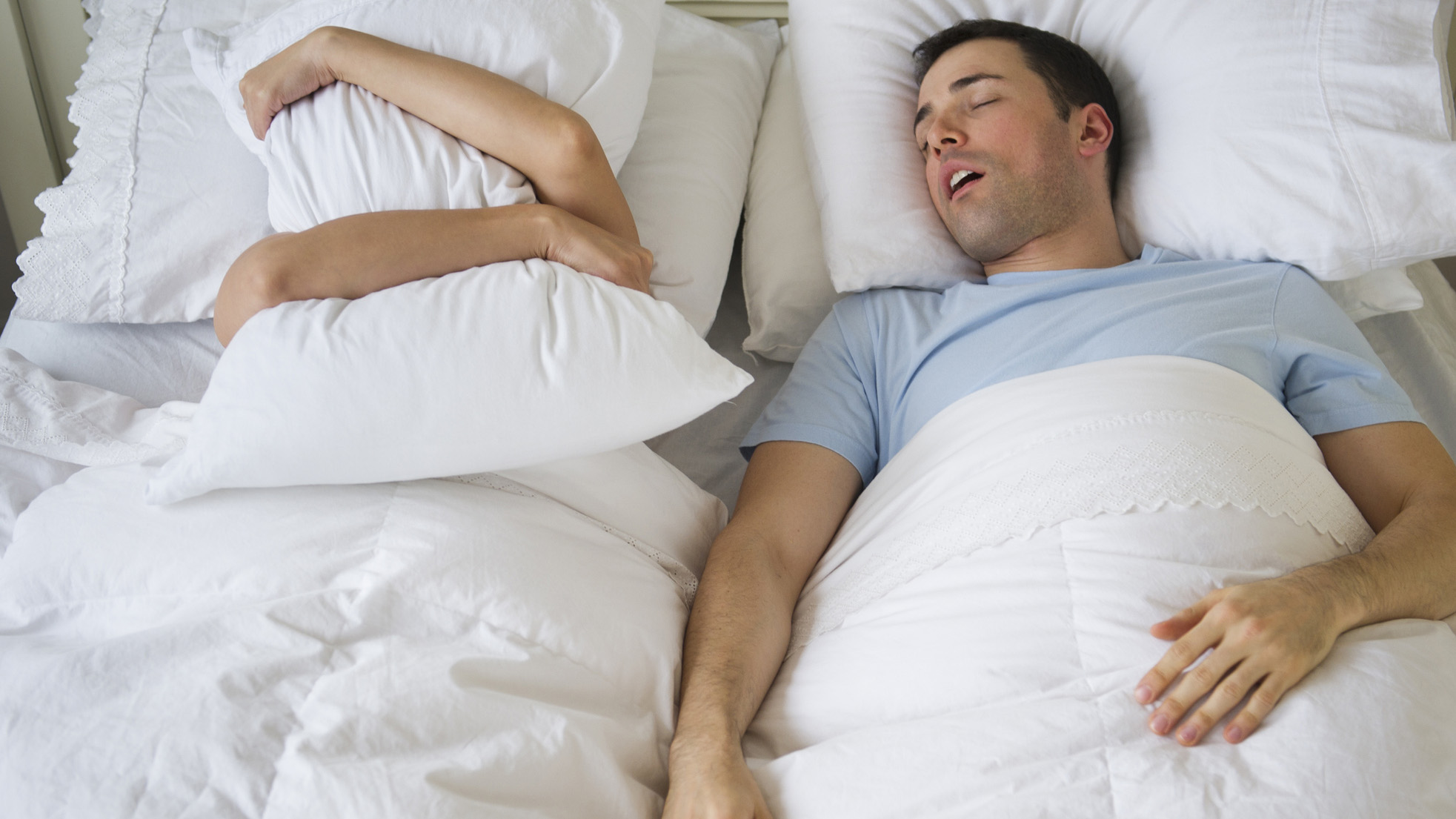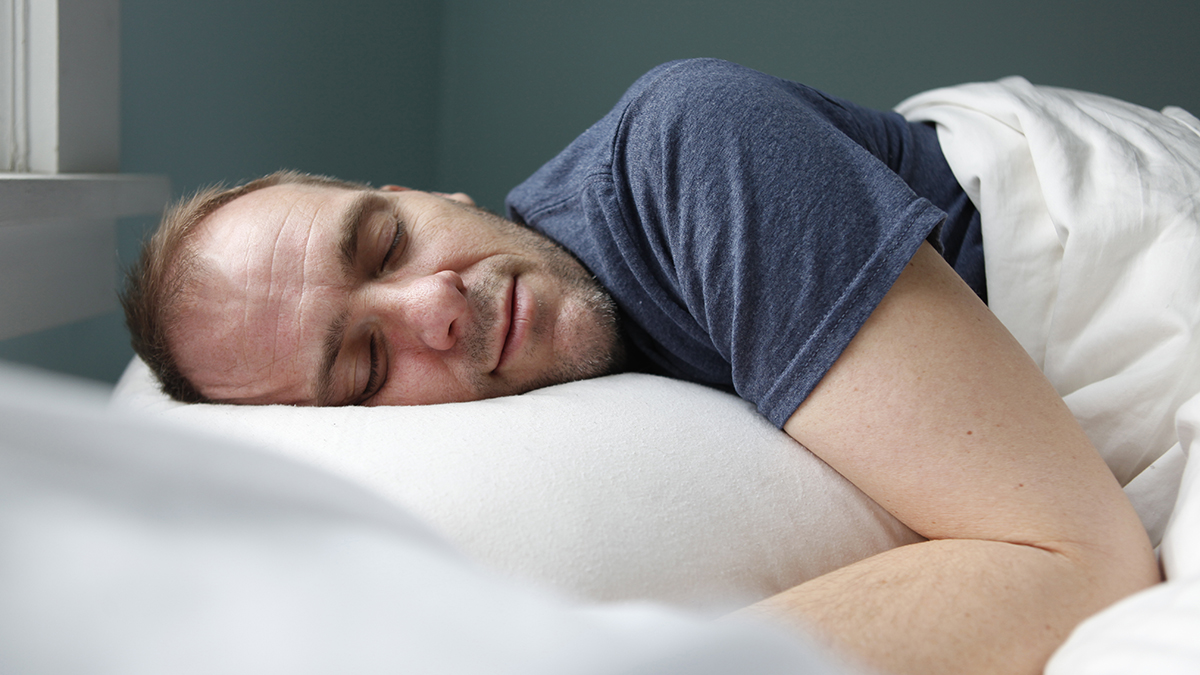Expert shares the top 5 causes of snoring — and remedies that help
A doctor explains why you might be snoring at night and the treatments that can help

We all know what snoring sounds like; that harsh, raspy, rattling sound that some of us make when we’re sleeping. But what causes snoring, and what treatments are available to help reduce or stop it? If you’re fed up of waking yourself up from snoring, or being kept awake by a snoring partner, then this feature is for you.
Here Dr Nikki Ramskill, a doctor with more than 12 years’ experience as an NHS GP and women’s health specialist, reveals the top 5 causes of snoring and the treatments that could help you learn how to stop snoring.
We also recommend making your bedroom the most relaxing space possible for sleep, including investing in the best mattress for the position your doctor recommends sleeping in to reduce snoring, such as side sleeping.
Is snoring normal?
You might be wondering, is it normal to snore? For the most part the answer is yes. “Light snoring in the absence of any other problems is not a cause for concern,” Dr Ramskill reassures us. “However, in some people, it can be an indication of something going on that needs addressing with your doctor.”
One issue that’s closely linked to snoring is sleep apnoea, which is where your breathing stops and starts as you sleep. As well as snoring, symptoms include making gasping or choking noises as you sleep, as well as waking up frequently and feeling very tired during the day. If you’re concerned you may have sleep apnoea, speak to your doctor or health professional for further advice.
Top 5 causes of snoring, according to an expert

1. The anatomy of your mouth
If you think about it, it makes a lot of sense that the anatomy of your mouth could be one of the reasons for your snoring. “The soft part of the back of your throat (called the soft palate) and the uvula (the bit that hangs down) can cause snoring if they protrude into the airway,” explains Dr Ramskill.
“The same goes for enlarged adenoids, which sit at the back of the nose, and the tonsils, which are in the back of the throat. If these are enlarged and swollen, it can impact on breathing and cause snoring when the air rushes past them and causes the tissues to vibrate.
Sign up to get the BEST of Tom's Guide direct to your inbox.
Get instant access to breaking news, the hottest reviews, great deals and helpful tips.
“The tongue can also play a role in this and flops back when you're asleep. Some people also have a lower jaw that naturally sits further back, making it more likely that their mouth will hang open when they sleep and cause snoring.”
2. Drinking alcohol close to bedtime
Drinking alcohol close to bedtime might make you fall asleep faster, but it’s also likely to disrupt your slumber a few hours later, as your body tries to process it. And not only is drinking alcohol close to bedtime increasing your chances of disturbed sleep, it’s also likely to make you snore.
“Alcohol is a muscle relaxant, and this affects all parts of our body, including the soft tissues of the mouth and tongue,” says Dr Ramskill. “Alcohol makes them more likely to relax even further than normal, making the snoring worse.”
3. Nasal problems
You’ve probably noticed (or your partner has noticed) that your snoring gets worse when your nose is stuffy or blocked, or you have a sore throat. It turns out that there’s a good reason for that.
“Swollen adenoids (which particularly affect children), as well as a cold, the flu, sinusitis or allergies can all cause the tissues of the nose to swell and lead to snoring,” says Dr Ramskill.

“When someone can't breathe through their mouth properly, this can also lead to snoring from the mouth, which needs to lay open in order to help with breathing.”
4. Sleep deprivation
If you’re someone whose sleep is disturbed by a snoring partner, then you may find it ironic to hear that sleep deprivation is actually a top cause of snoring. But it’s true – the more exhausted we are when we climb into bed, the more likely we are to snore.
“Like with alcohol, when someone is very sleep deprived, they are more likely to go into a highly relaxed state and this causes the soft tissues to relax more than usual, worsening or deepening the snoring,” explains Dr Ramskill.
5. Being overweight
Being overweight or obese is also a common cause of snoring, and also increases your risk of developing sleep apnoea. “As well as all of the other factors, having more weight on the body can cause the airways to collapse more readily due to the weight of the chest or the soft tissues around the throat,” says Dr Ramskill.
“People with larger neck circumferences are more likely to develop snoring and more serious issues like sleep apnoea as a result.”
Treatments for snoring, according to an expert
1. Make some lifestyle changes
There are a number of lifestyle changes you can make to reduce your snoring. First, try sleeping on your side rather than on your back, as this “avoids the soft palate, uvula and tongue collapsing into the airway at the back of the throat, reducing the vibrational effect,” according to Dr Ramskill.
“Losing weight can also help to reduce neck circumference and reduce external compression of the airway,” she adds.

Finally, you can try avoiding alcohol close to bedtime, which can “help with weight and with the relaxation effect it has on all the soft tissues.” If you want to ensure your chances of a deep and peaceful slumber, then a good rule of thumb is to avoid drinking alcohol around four hours before bed.
2. Try nasal dilators or nose strips
You might have seen nose strips or nasal dilators on the shelves of your local pharmacy, and it might be worth giving them a try, especially if you have a blocked or stuffed up nose that’s causing you to snore.
“If a blocked nose is a cause of snoring, nasal dilators or nose strips can help widen the passageways to help you breathe more easily, and reduce the vibrations that cause snoring,” explains Dr Ramskill.
3. Keep your mouth closed
If you’re able to, then keeping your mouth closed and breathing through your nose while you sleep can be a huge help in tackling snoring. But how can you keep your mouth closed throughout the night?
“There are a variety of mouth pieces that can be purchased that help to keep the lower jaw more in alignment with the upper jaw when sleeping,” suggests Dr Ramskill. “There are also material devices that hook around the ears and under the chin to keep the mouth closed at night.”
When to seek help for snoring
While snoring at some point or another is very common, it can sometimes become a problem that impacts on our lives. If you’ve tried the treatments above and found that they haven’t helped, or snoring is consistently keeping you awake at night, then speak to your doctor for advice.
If you find yourself feeling very tired and sleepy during the day, or waking up through the night making gasping or choking noises, then it could also be a good idea to see a doctor or health professional. They will be able to check if you have sleep apnoea, which can be potentially serious if left untreated.
Finally, if your partner or co-sleeper is impacted by your snoring and unable to sleep, it might also be time to book in an appointment with your doctor or health professional to see what help could be available for you both.
Sarah Biddlecombe is an award-winning freelance journalist and editor who writes about sleep and wellbeing. As a long-suffering insomniac, Sarah has been writing about sleep for many years, including features, news and product reviews, as well as launching the Sleep Diaries franchise at Stylist. Sarah has written for The Times, The Guardian Weekend, TechRadar, The Independent and more, and writes about sleep health and techniques for Tom's Guide.

